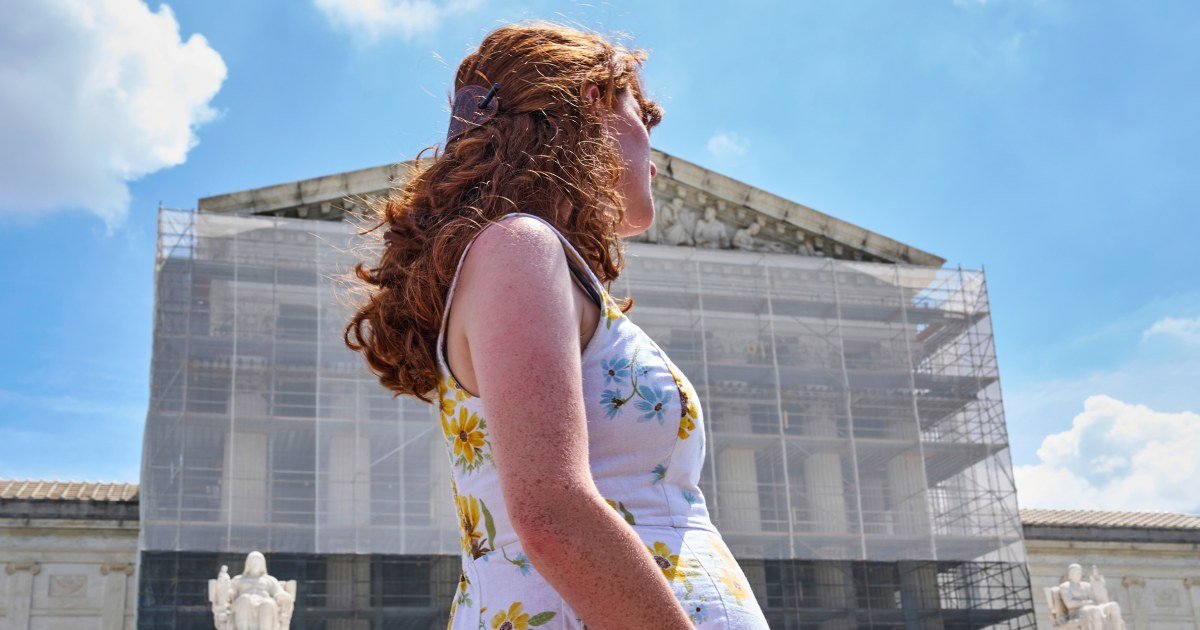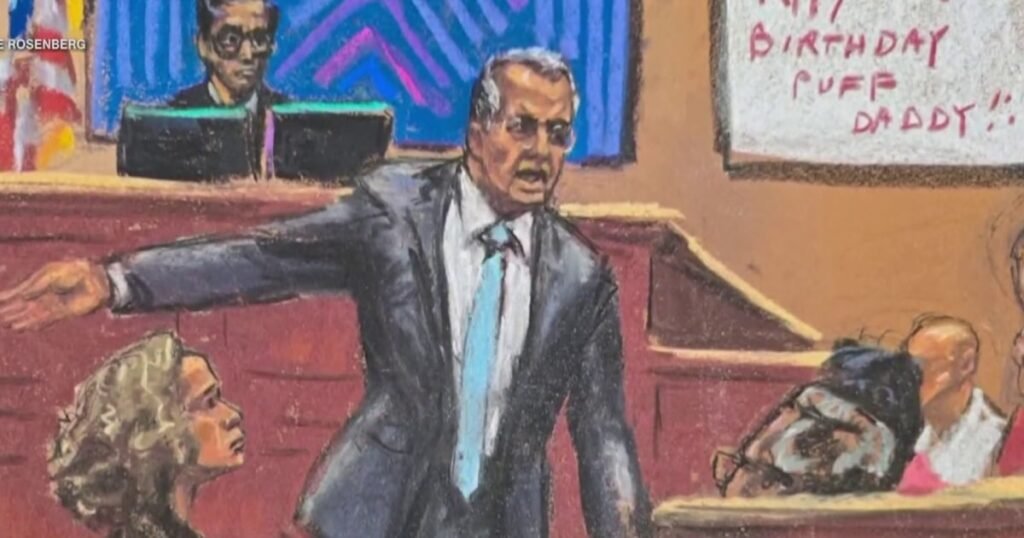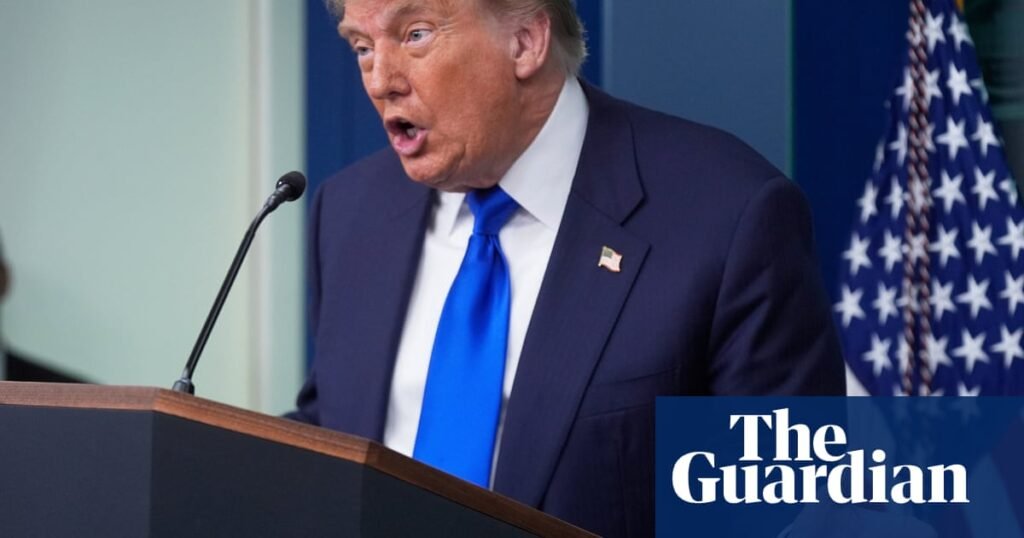Now Reading: What comes next after the Supreme Court’s birthright citizenship ruling: From the Politics Desk
-
01
What comes next after the Supreme Court’s birthright citizenship ruling: From the Politics Desk
What comes next after the Supreme Court’s birthright citizenship ruling: From the Politics Desk

Welcome to the online version of From the Politics Desk, an evening newsletter that brings you the NBC News Politics team’s latest reporting and analysis from the White House, Capitol Hill and the campaign trail.
Happy Friday! The weekend is upon us, unless you’re a member of the U.S. Senate who’s set to spend the next couple days working on the “big, beautiful bill.” Today also marks the one-year anniversary of the now-infamous presidential debate between Joe Biden and Donald Trump.
In today’s edition, our legal team breaks down what comes next after the Supreme Court’s major ruling in the birthright citizenship case. Plus, Kristen Welker previews her exclusive interview this weekend with Zohran Mamdani.
— Adam Wollner
Sign up to receive this newsletter in your inbox every weekday here.
— Adam Wollner
Supreme Court birthright citizenship ruling sparks new round of legal fights
By Lawrence Hurley and Gary Grumbach
Almost as soon as the Supreme Court released its ruling limiting the ability of judges to block President Donald Trump’s plan to end birthright citizenship, challengers brought new legal claims seeking the same result by a different means.
While the Supreme Court said judges cannot issue sweeping “universal injunctions” that can apply nationwide in many cases, it left open the option of plaintiffs seeking broad relief via class action lawsuits.
The American Civil Liberties Union filed such a lawsuit in New Hampshire on behalf of immigrants whose children may not obtain U.S. citizenship at birth if Trump’s order was to go into effect.
In a separate case in Maryland, in which groups had previously obtained a nationwide injunction, lawyers filed an amended complaint seeking similar class-wide relief for anyone affected by Trump’s plan within hours of the ruling authored by Justice Amy Coney Barrett.
Under Trump’s plan, birthright citizenship would be limited to those who have at least one parent who is a U.S. citizen or permanent resident. That is at odds with the widely accepted understanding of the Constitution’s 14th Amendment — that it grants citizenship to anyone born in the U.S., with a few minor exceptions.
Samuel Bray, a critic of nationwide injunctions at Notre Dame Law School whose work was cited in the ruling, said both the states and individual plaintiffs can still get broad injunctions against the birthright citizenship executive order, potentially even on a nationwide basis.
“I don’t expect the executive order will ever go into effect,” he added.
How Trump is responding: At a news conference, Trump made it clear the administration would proactively use the Supreme Court ruling not just to bolster its birthright citizenship proposal but also to push forward on other policies that have been blocked by judges on a nationwide basis.
“Thanks to this decision, we can now promptly file to proceed with numerous policies that have been wrongly enjoined on a nationwide basis,” the president said.
Read more from Lawrence and Gary →
More coverage from the final day of the court’s term:
Steve Bannon urges Republicans to take Zohran Mamdani’s rise ‘seriously’
By Kristen Welker
Zohran Mamdani pulled off a stunning upset in New York City’s mayoral primary this week, sending shock waves through the Democratic Party. A little-known state lawmaker, Mamdani ran a campaign that energized key Democratic constituencies and ultimately forced former Gov. Andrew Cuomo to concede.
And now, even Republicans are starting to pay attention. Steve Bannon, a close ally to President Donald Trump, told me the GOP should take Mamdani’s rise seriously.
“He did something that AOC and Bernie haven’t been able to do — he connected populism to affordability,” Bannon told me. “Republicans better start taking this guy seriously and they better stop wishing that he wins, and they will automatically run against his policies in 2026. This guy is a very skilled politician. He’s clearly had a lot of training. He’s got radical ideas, but he presents them in a sunny upbeat way and people feel like he’s fighting for them, particularly on an issue that Republicans haven’t connected on yet: affordability.”
Mamdani has the momentum at the moment, but if elected mayor this fall, he would face immediate questions about whether he and his fellow democratic socialists can effectively govern the nation’s largest city. He would oversee a $115 billion budget, more than 300,000 city employees and the country’s largest police force.
Mamdani has pledged to expand affordable housing, make city buses free and lower the cost of living by raising taxes on large corporations and the top 1% of earners. But his record in Albany offers limited evidence of legislative success: The New York Times reported that only three relatively minor bills he sponsored became law.
Delivering on his promises would be difficult. Democratic New York Gov. Kathy Hochul — who has said she’s not ready to back Mamdani yet — already rejected his proposed tax hikes on the wealthy, and making public buses free would require state approval.
So, if given the opportunity to govern, how would Mamdani do it, given these challenges?
I’ll talk to Mamdani about all of this in an exclusive interview on “Meet the Press” this Sunday.
Related read: Zohran Mamdani’s social media strategy was about more than viral videos, by Angela Yang and Bruna Horvath
🎙️Here’s the Scoop
This week, NBC News launched “Here’s the Scoop,” a new evening podcast that brings you a fresh take on the day’s top stories in 15 minutes or less.
In today’s episode, host Yasmin Vossoughian discusses the Supreme Court’s ruling in the birthright citizenship case with NBC News senior legal correspondent Laura Jarrett and senior Supreme Court reporter Lawrence Hurley.
Listen to the episode here →
✉️ Mailbag: Is Trump delivering on his deportation promises?
Thanks to everyone who emailed us! This week’s reader question is about Trump’s mass deportation agenda.
“The president says they are deporting rapists, drug dealers and child molesters. I was wondering how many of the arrests are of real criminals and how many are just illegal entry workers?”
To answer this, we turned to an exclusive report this week from our colleagues Julia Ainsley and Laura Strickler.
They obtained internal Immigration and Customs Enforcement data of every person booked from Oct. 1 through May 31, part of which was during the Biden administration. It shows a total of 185,042 people arrested and booked into ICE facilities during that time; 65,041 of them have been convicted of crimes. The most common categories of crimes they committed were immigration and traffic offenses.
Last fall, ICE told Congress that 13,099 people convicted of homicide and 15,811 people convicted of sexual assault were on its non-detained docket, meaning it knew who they were but did not have them in custody.
The new data shows that from Oct. 1 to May 31, ICE arrested 752 people convicted of homicide and 1,693 people convicted of sexual assault, meaning that at the most, the Trump administration has detained only 6% of the undocumented immigrants known to ICE to have been convicted of homicide and 11% of those known to ICE to have been convicted of sexual assault.
Read more →
🗞️ Today’s other top stories
- 🇨🇦 Oh, Canada: Trump said he had terminated trade discussions with Canada, citing an incoming Canadian tax on tech companies including ones based in the U.S. Read more →
- 📈 Market mania: The S&P 500 closed today at a new all-time high — rebounding to just a few points above its level around the start of Trump’s second term. Read more →
- 📝 Working for the weekend: Senate Republican leaders are hoping to start voting on their massive domestic policy bill on Saturday, even as major pieces of it have yet to be finalized. Read more →
- 🏫 School’s out: The president of the University of Virginia is resigning following pressure from the Trump administration to step aside amid a Justice Department probe into the school’s diversity practices. Read more →
- 🔴 Three’s a crowd: Businessman Nate Morris, an ally of Vice President JD Vance, joined former state Attorney General Daniel Cameron and Rep. Andy Barr in the GOP primary for Kentucky Senate. Read more →
- 🗳️ If it’s Saturday: Democratic voters head to the polls tomorrow for a special primary election to replace the late Rep. Gerry Connolly in a deep-blue northern Virginia district. Read more →
- 🔀 Intel shake-up: Sen. Tom Cotton of Arkansas, the chair of the Intelligence Committee, is proposing a sweeping overhaul of the Office of the Director of National Intelligence, led by Tulsi Gabbard. Read more →
- ⚖️ Newsom v. Fox: California Gov. Gavin Newsom is suing Fox News for $787 million, accusing host Jesse Watters of defamation by falsely claiming that Newsom lied about a phone call with Trump during a dispute over the use of the National Guard in Los Angeles. Read more →
- Follow live politics coverage →
That’s all From the Politics Desk for now. Today’s newsletter was compiled by Adam Wollner and Dylan Ebs.
If you have feedback — likes or dislikes — email us at politicsnewsletter@nbcuni.com
And if you’re a fan, please share with everyone and anyone. They can sign up here.


















































